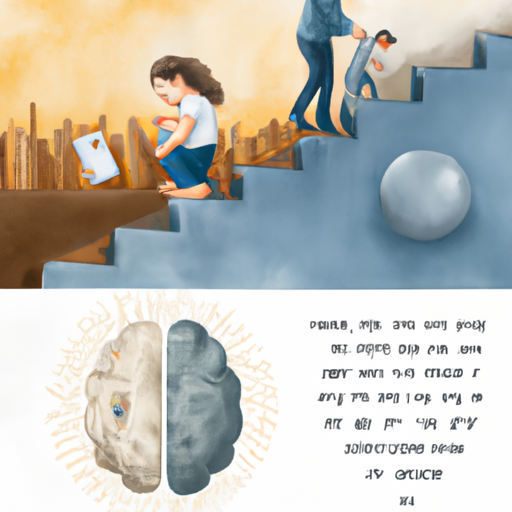This blog post explores the intricacies of the Israeli education system. It discusses its structure, strengths, challenges, and the role it plays in shaping the nation’s future. The article provides a comprehensive understanding of how education is perceived and executed in Israel, a country known for its high academic achievements.
1. The Structure of Education in Israel: A Comprehensive Overview
The education system in Israel is structured into three main tiers: primary education, secondary education, and higher education. At the primary level, children typically start school at the age of five or six and attend elementary school until the age of 12. This stage focuses on building foundational skills in subjects such as Hebrew, mathematics, science, English, and social studies. Secondary education in Israel consists of middle school and high school, with students typically attending from ages 12 to 18. During this stage, students have the option to choose between academic or vocational tracks, which can prepare them for university or technical careers. The curriculum includes a wide range of subjects, including literature, history, civics, and physical education.
Moving on to higher education, Israel boasts a robust system of universities, colleges, and vocational institutions. The country is home to several prestigious universities, such as the Hebrew University of Jerusalem, Tel Aviv University, and the Technion – Israel Institute of Technology. These institutions offer a diverse range of undergraduate and graduate programs in fields such as engineering, medicine, humanities, and social sciences. Additionally, Israel places a strong emphasis on research and innovation, with many universities conducting cutting-edge research in various disciplines. Students in Israel have the opportunity to pursue higher education through traditional academic paths or specialized vocational training programs tailored to specific industries.
2. Strengths of Israeli Education: What Makes It Stand Out?
Israeli education stands out for several key strengths that set it apart on the global stage. One of the primary strengths of the Israeli education system is its focus on innovation and entrepreneurship. Israel is known as the “Start-Up Nation” for its thriving tech industry and culture of innovation, which is reflected in the education sector. Schools and universities in Israel emphasize critical thinking, problem-solving, and creativity, preparing students to become future leaders and innovators in various fields. This emphasis on innovation has led to Israel producing a high number of successful entrepreneurs, scientists, and engineers who have made significant contributions to society.
Another strength of Israeli education is its commitment to academic excellence. Israeli students consistently perform well in international assessments such as the Program for International Student Assessment (PISA), demonstrating high levels of proficiency in subjects like mathematics, science, and reading. This academic achievement is attributed to the rigorous curriculum, dedicated teachers, and culture of academic excellence that permeates the education system. Additionally, Israel’s higher education institutions are renowned for their world-class research and academic programs, attracting students and scholars from around the globe.
3. ‘Are there challenges facing the Israeli education system?’ – An In-depth Analysis
While the Israeli education system boasts many strengths, it also faces several challenges that need to be addressed. One significant challenge is the achievement gap between different socio-economic groups. Students from lower-income families and marginalized communities often face barriers to academic success, leading to disparities in educational outcomes. Addressing this achievement gap requires targeted interventions, such as increased investment in resources for schools in underprivileged areas, teacher training programs, and support services for at-risk students. By addressing these disparities, the Israeli education system can work towards ensuring equal opportunities for all students, regardless of their background.
Another challenge facing the Israeli education system is the overcrowding in schools, particularly in urban areas. The rapid population growth in Israel has put pressure on existing school infrastructure, leading to overcrowded classrooms and limited resources. This overcrowding can negatively impact the quality of education and student learning outcomes. To address this challenge, there is a need for strategic planning and investment in expanding school infrastructure, building new schools, and hiring more teachers to reduce class sizes. By alleviating overcrowding, the Israeli education system can create a more conducive learning environment for students and improve overall education quality.

3. An illustration depicting the various challenges faced by the Israeli education system
4. The Role of Education in Israel’s Future: A Proactive Approach to Learning
Education plays a crucial role in shaping the future of Israel by equipping students with the knowledge, skills, and values needed to thrive in a rapidly changing world. A proactive approach to learning is essential to prepare students for the challenges and opportunities of the 21st century. This approach involves fostering a culture of innovation, critical thinking, and lifelong learning to adapt to an ever-evolving global landscape. By encouraging creativity and curiosity in students, the Israeli education system can nurture future leaders, innovators, and problem solvers who can drive progress and prosperity in society.
Furthermore, education in Israel serves as a catalyst for social cohesion and national unity. By promoting diversity, tolerance, and mutual respect in schools, education can help bridge societal divides and foster a sense of shared identity among students from different backgrounds. Emphasizing values of inclusivity and empathy can empower students to become active citizens who contribute positively to their communities and work towards a more harmonious and equitable society. In this way, education not only shapes individual futures but also lays the foundation for a more cohesive and united Israel.
Israel’s education system is a testament to the nation’s commitment to intellectual growth and technological advancement. Despite the challenges it faces, the system continues to evolve and adapt, ensuring its students are well-prepared to contribute to the country’s progress. The ongoing efforts to bridge socioeconomic gaps and embrace diversity within classrooms are indicative of the dynamic nature of Israeli education.
